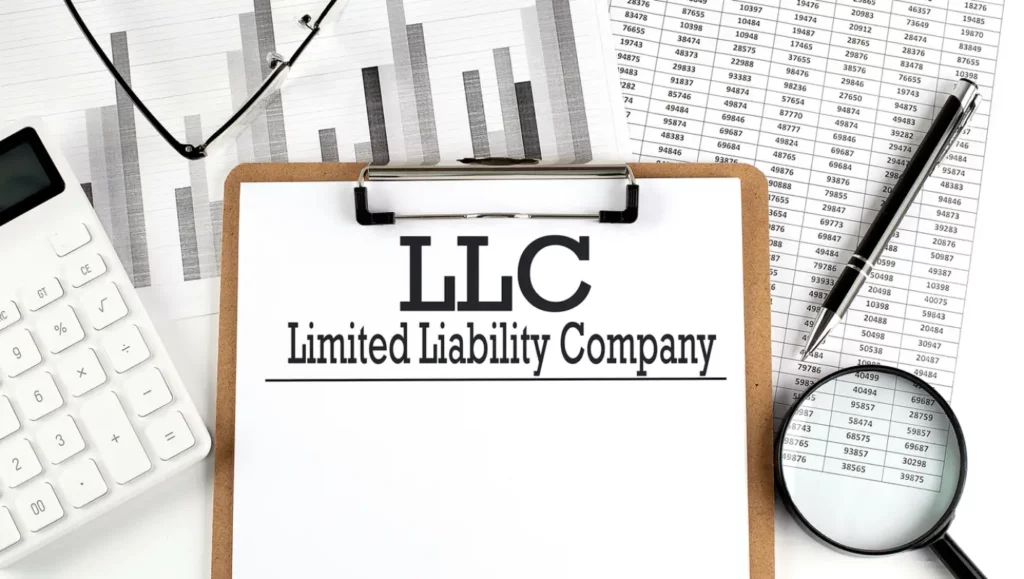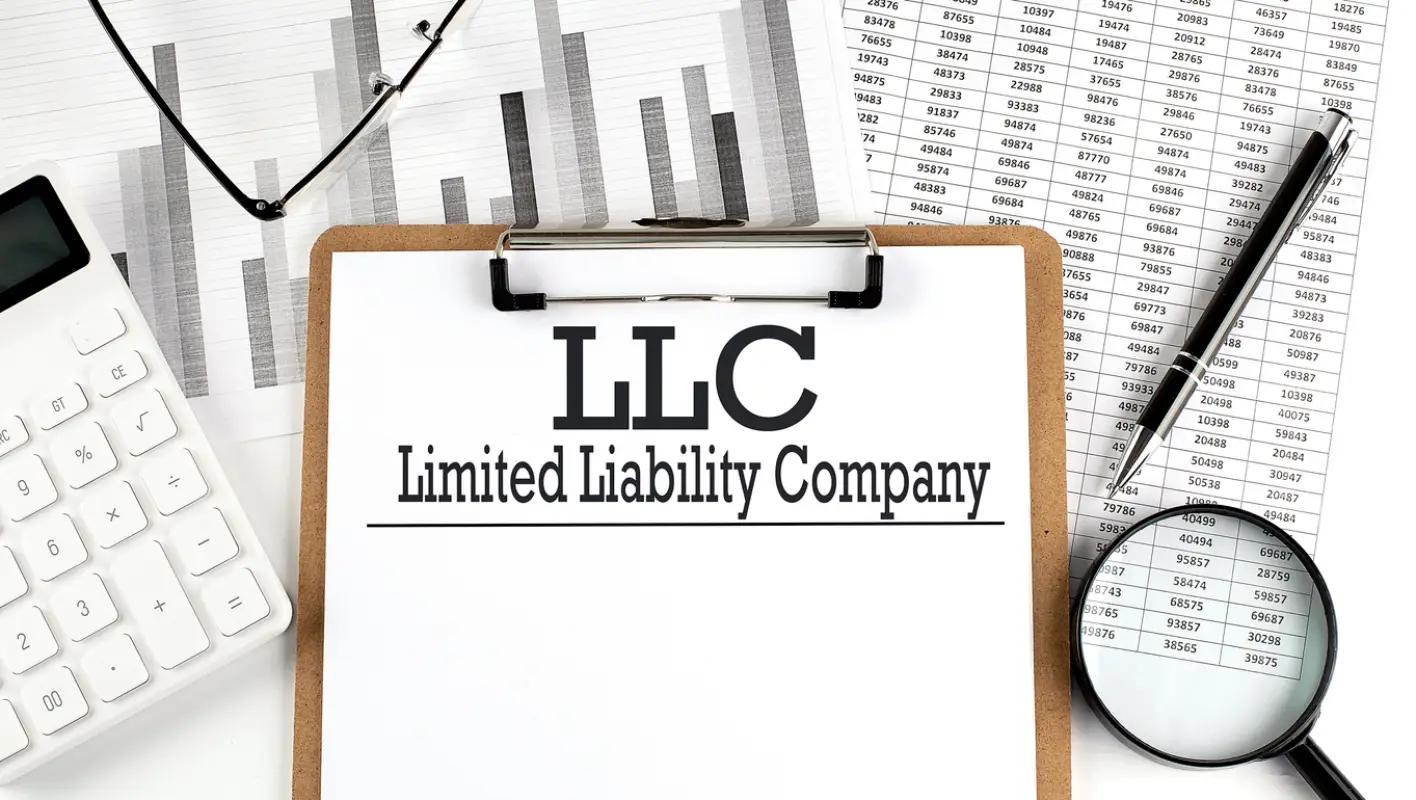Starting a business means making critical decisions from the start — one of the most significant choices is selecting the right business structure. The two most popular structures, the Limited Liability Company (LLC) and the Corporation offer unique benefits, challenges, and rules. Choosing the right business structure depends on factors like liability protection, tax implications, management requirements, and the industry in which your organization operates. This guide will walk you through everything you need to know about LLCs and corporations, and how to determine which is best for your business.

A Limited Liability Company (LLC) is a business structure that offers limited liability protection and pass-through taxation as a pass-through entity. This business structure combines the liability protection of a Corporation with the flexibility and simplicity of a partnership; it is trendy among small business owners due to its ease of formation, management flexibility, and favorable tax treatment. A limited liability company is going to offer slightly different benefits and requirements than that of an S-corporation or C-Corporation, but often business owners will opt for an S-corporation election as long as their revenue is above a certain threshold to experience potential tax savings. In instances like these, ownership interests can also play a huge part in the tax structure and tax consequences, which will vary widely as the Internal Revenue Code set forth by the Internal Revenue Service (IRS) dictates what is and is not allowed when you form an LLC.
Benefits of forming an LLC include:
- Personal Liability Protection
The primary benefit of limited liability companies is the liability protections that it provides. LLC Members’ assets—such as homes, cars, and personal bank accounts—are generally shielded from the business’s debts and legal liabilities. There are various financial considerations that a business owner should follow so as not to pierce the corporate veil, otherwise, they may be held personally liable as a result of their business operations. For example, if an LLC is sued or defaults on a loan, only the business assets are at risk, and members’ personal property is protected. This is especially valuable in industries with higher risks, such as real estate, construction, and manufacturing. - Management Flexibility
A business entity formed as an LLC allows members to choose their management structure. They can manage the business themselves (member-managed LLC) or appoint managers to handle day-to-day operations (manager-managed LLC). Unlike corporations, LLCs are not required to have a board of directors, hold annual meetings, or keep extensive records, making it easier to manage and more adaptable to changes in the business. This flexibility is particularly attractive to small businesses and startups that need to remain agile. - Pass-Through Taxation
LLCs are generally taxed as pass-through entities, meaning that business profits and losses pass directly to the LLC owners’ tax returns. This avoids being taxed twice, which is common with corporations. Additionally, members can deduct certain business expenses and may qualify for the Qualified Business Income (QBI) deduction, allowing them to deduct up to 20% of their business income on their tax return, depending on income levels, ownership interest, and the nature of the business. - Fewer Record-Keeping Requirements
Unlike corporations, LLCs are not required to hold annual meetings, maintain minutes, or file extensive paperwork. While LLCs do need to file an annual report in some states such as the Secretary of State Filings in California, the overall administrative burden is lighter, making it more affordable and simpler to operate. This reduced paperwork can be a major advantage for business owners who prefer focusing on growth rather than compliance. Corporate tax rates for limited liability companies will differ from those of an s corporation or c corporation. - Easier Profit Distribution
LLCs offer flexibility in how profits are distributed among members. Unlike corporations, where dividends are distributed based on shares owned, LLCs can allocate profits and losses based on terms outlined in the operating agreement. This is particularly useful in partnerships where members may contribute differently in terms of capital, expertise, or time, ultimately giving business entities the option to account for business debts, corporate taxes, tax deductions, and self-employment tax more readily.
Setting up an LLC involves a few straightforward steps, but it’s essential to follow each one carefully to ensure compliance and avoid complications later on. Here’s a detailed look at the LLC formation process:
- Choose a State for Formation
- Most business owners choose to form an LLC in the state where they will primarily operate. However, some choose states like Delaware, Nevada, or Wyoming due to favorable business laws and tax policies such as charging order protections. You might have a few states in your scope, but it’s best to choose one that will fit your business entity’s needs.
- Consideration: To Form an LLC outside your home state, may require additional paperwork and registration fees to operate as a foreign LLC in your home state. It’s essential to weigh the benefits and costs of forming an LLC in a different state. California requires registration of foreign LLCs if any business is conducted in the state which means double the paperwork from additional state filings, more complex tax filings, and a few other complexities.
- Choose a Name for Your LLC
- Ensure the name is unique within your state, complies with naming guidelines, and includes “LLC” or “Limited Liability Company.” Avoid restricted words (e.g., “bank,” “insurance”) unless specific licenses or permissions are in place.
- Naming Tip: Search for your state’s business registry and a federal trademark search to avoid potential conflicts with existing businesses.
- Prepare an LLC Operating Agreement
- An operating agreement is a legally binding document outlining ownership, responsibilities, voting rights, profit-sharing arrangements, and exit strategies. It prevents conflicts among members by establishing clear rules.
- Importance: While not required in every state, an operating agreement is crucial for multi-member LLCs. It can prevent disputes and protect the business if disagreements arise.
- File Your LLC with the State
- Submit the “articles of organization” or “certificate of formation” to your state’s business filing agency, usually the Secretary of State. Filing fees vary widely by state, generally ranging from $50 to $500.
- Pro Tip: A few states also require LLCs to publish a notice of formation in a local newspaper, so check your state’s requirements to avoid fines.
- File a Beneficial Ownership Information Report (BOI)
- Recently, some state and federal government regulations may require LLCs to report information about their beneficial owners to increase transparency and prevent financial crimes. Check your state’s requirements when forming your legal entity.
- Obtain an EIN, Sales Tax ID, and License
- An EIN (Employer Identification Number) is essential for hiring employees, filing taxes, and opening a business bank account. Apply for an EIN with the IRS online.
- Additional Licenses: Check with your state and local governments for any necessary business licenses, especially for regulated industries.
- Open a Business Bank Account
- Separating business and personal finances is crucial for maintaining liability protection. A dedicated bank account simplifies accounting and helps maintain clear records, which is essential for tax purposes. Mixing personal assets with business assets such as bank accounts can pierce the corporate veil, resulting in the loss of liability protections that your LLC once offered making the business owner responsible any legal proceedings. It is recommended that sole proprietors have separate accounts for their business activities.
A Corporation is a more formal business structure that exists as a separate legal entity from its owners (shareholders). Corporations are often chosen by larger businesses, especially those seeking outside investment, due to their ability to issue stock and attract investors. Corporations offer personal liability protection, corporate tax benefits, and greater access to capital through stock sales, making them a common choice for larger businesses and those seeking investment. Note: corporations may incur some additional filing fees.
Benefits of forming a corporation include:
- Personal Liability Protection
Corporations provide strong liability protection, shielding shareholders’ personal assets from business liabilities. In case of a lawsuit or financial loss, only corporate assets are at risk, provided that shareholders have not personally guaranteed debt or engaged in fraudulent activities. This protection can be a deciding factor for entrepreneurs in high-risk industries or those seeking investment. - Tax Benefits and Flexibility
Corporations, especially C corporations, offer tax advantages such as deductions for health insurance, retirement plans, and employee benefits. Additionally, corporations can retain earnings in the business, potentially deferring taxes on distributed income. Choosing between a C Corp and an S Corp structure offers further flexibility depending on the company’s needs, S corporations avoid being taxed twice by passing income through to shareholders while C Corporations essentially pay tax twice due to taxation requirements. - Ability to Raise Capital
Corporations can issue stock making it easier to attract investors. By selling shares, Corporations can raise substantial capital for growth, expansion, or research and development. This access to capital is particularly valuable for businesses with high growth potential or those that may go public in the future. - Perpetual Existence
Corporations have a perpetual lifespan, meaning they continue to exist independently of changes in ownership. If a shareholder sells their shares or passes away, this business structure remains unaffected. This continuity can be appealing to investors and business owners planning for long-term growth. - Enhanced Credibility
Corporations are often perceived as more credible and stable than other business structures, which can help attract larger clients, secure contracts, and build stronger relationships with lenders. This perception can be especially valuable for businesses in industries like finance, technology, and healthcare.

- C Corporation (C Corp)
- The most common type of corporation is the C Corp. This type of legal business entity is subject to corporate income tax, meaning they face “double taxation.” Profits are taxed at the corporate level, and any dividends distributed to shareholders are taxed with their personal personal income.
- Advantages: C Corps have no restrictions on the number of shareholders, making them ideal for businesses seeking significant investment or planning to go public.
- S Corporation (S Corp)
- An S Corp is a special type of corporation that avoids double taxation by allowing income, deductions, and credits to pass through to shareholders’ personal tax returns. However, an S Corp does have restrictions, such as a limit of 100 shareholders. Other requirements include: all shareholders have to be US citizens, the S Corp must be domestic, it can only have one class of stock and more.
- Advantages: Although an S Corp is popular among small businesses that want the benefits of a corporation without being taxed twice, they may face limitations in ownership and income distribution flexibility.
Management and Recordkeeping:
- LLCs: LLCs are simpler to manage with fewer formalities. Members can manage the business directly, and LLCs are generally not required to hold annual meetings or maintain extensive records.
- Corporations: Corporations have a more rigid structure, requiring a board of directors, shareholder meetings, and corporate minutes. This formal governance structure is ideal for larger organizations but can be burdensome for small businesses.
Taxes and Business Income:
- LLCs: Profits pass through to members’ tax returns, avoiding corporate tax. LLC members pay self-employment taxes on their share of profits.
- Corporations: C Corps face double taxation, where the corporation is taxed on profits, and shareholders are taxed on dividends. S Corps avoid double taxation but have ownership restrictions.
Business Ownership and Control:
- LLCs: Ownership and control can be flexible, with ownership interests not necessarily tied to voting power. This allows for customized arrangements, especially in multi-member LLCs.
- Corporations: Ownership is represented by shares of stock, and shareholders elect a board of directors to make major decisions, adding a layer of separation in decision-making.
Lifespan and Continuity:
- LLCs: LLCs may dissolve if a member leaves or dies unless an operating agreement specifies otherwise.
- Corporations: Corporations have a perpetual lifespan, continuing to exist regardless of ownership changes.
Selecting the right structure depends on your business needs, goals, and industry requirements. Here are some key considerations:
- Industry-Specific Requirements: Certain industries (e.g., healthcare, finance) have regulations that may make one structure more suitable. For example, corporations may be required in some heavily regulated industries.
- Personal Assets and Liability: Both structures offer liability protection, but LLCs are often easier to set up and maintain.
- Management and Control: LLCs offer more flexibility, while corporations have formal management structures. Consider how much control and flexibility you need.
- Tax Implications: LLC owners may be subject to self-employment taxes, while corporations can structure salaries and dividends to optimize tax outcomes. Although both pay taxes, you want to do the research to find which business structure is right for you.
Certain industries may benefit more from one structure over the other:
Different industries may benefit from specific business structures:
- Real Estate and Property Management: LLCs are ideal for real estate businesses due to liability protection and flexibility. Many real estate investors use LLCs to protect their personal assets from potential liabilities associated with property ownership.
- E-Commerce and Online Businesses: LLCs are popular for e-commerce startups as they are simple to form and manage. Corporations may be suitable if seeking investors or planning to go public.
- Service-Based Businesses: Service-oriented businesses, such as consulting or freelancing, prefer LLCs for simplicity and flexibility. However, larger service firms with employees may opt for a corporation to facilitate growth.
Choosing between an LLC and a corporation is a significant decision that affects your liability protection, taxes, and management structure. Both structures provide unique advantages, and the right choice depends on your specific needs, industry regulations, and financial goals.
Key Takeaways:
- LLCs offer flexibility and pass-through taxation, making them suitable for small businesses and those seeking simple management.
- Corporations provide more structure and the ability to raise capital through stock sales, ideal for businesses looking to expand or seek investors.
Pro Tip: Always consult a business attorney, Certified Public Accounting, Enrolled Agent, or business professional to ensure you’re making the best decision for your business. They can guide you through tax implications, liability considerations, and the legal requirements for each structure.
Remember: The business structure you select will impact your tax obligations, liability protection, and the way you manage your business. Choose wisely to set your business up for success.



